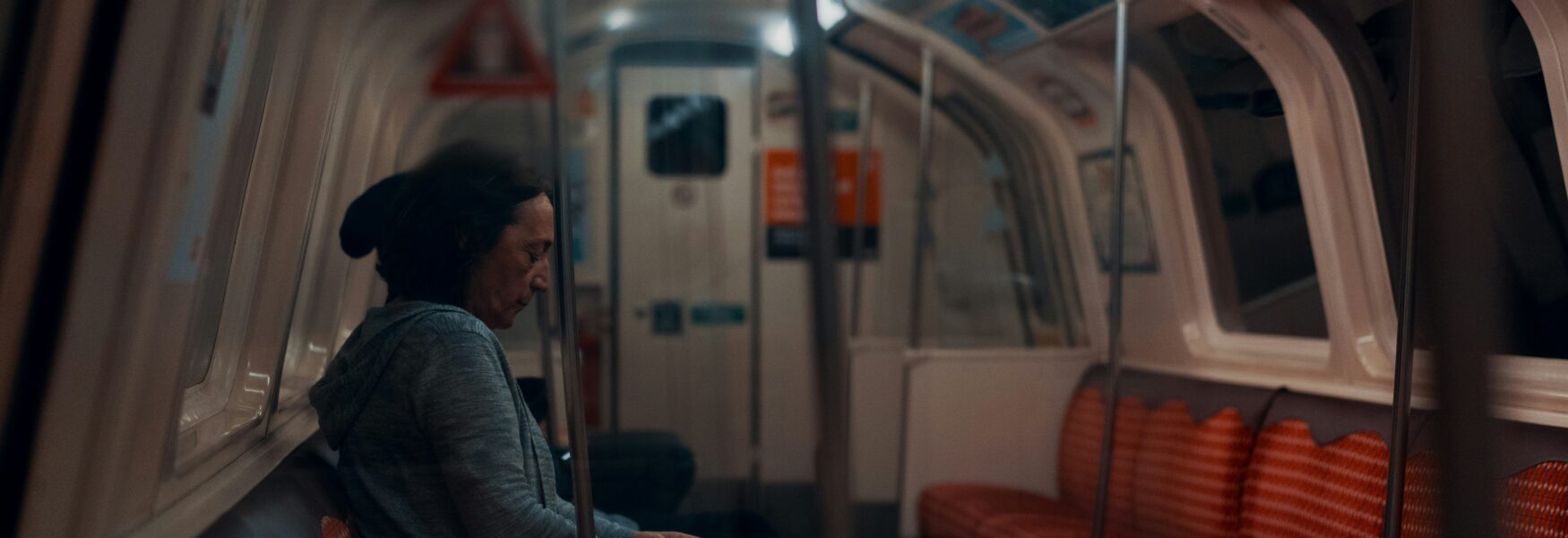🕒 5 min read
Many women experiencing homelessness in the UK remain invisible to the system, and don’t appear in official statistics. Government counts are largely focused on rough sleeping, yet women’s homelessness often takes more hidden forms, including sofa surfing, staying in unsafe situations, or moving between temporary places to survive.
As we approach International Women’s Day on 8th March, it is vital to recognise how these hidden experiences of homelessness disproportionately affect women and why they continue to be overlooked in policy, funding and service design. This invisibility means thousands of women are left without the support they need, reinforcing cycles of trauma, instability and harm.
In this blog, we explore the current picture of women’s homelessness in the UK and hear from leading experts on what needs to change to ensure women are seen, supported and protected.
Before we get started
If you’d like to learn more about how we support people at risk of or experiencing homelessness, join our newsletter for the latest updates—and consider making a donation to help us continue this vital work.
Why Women’s Homelessness Often Goes Unseen
Women’s experiences of homelessness often look very different from men’s, and as a demographic, their experiences are far less visible. Safety concerns mean that women are less likely to sleep rough in public places, and are more likely to be hidden. This could be in the form of sofa surfing with friends or family, staying in unsafe or exploitative relationships to avoid sleeping outside, or finding hidden places to sleep for their own safety.
Because official government counts focus mainly on people seen sleeping rough, these hidden forms of homelessness are rarely recorded. This results in women being underrepresented in official statistics, which in turn leads to underfunded and inadequate services that fail to meet their needs. This is highlighted by new research by Solace Women’s Aid and Single Homeless Project, which revealed that nine out of ten homeless women are missing from official government figures. In addition, 54% were not recorded in official statistics because they spend the night in places like public transport, 24-hour cafes or A&E departments, which are not classified as rough sleeping areas.
These findings are also reflected in the 2024 Leeds Women’s Rough Sleeping Census, facilitated by Basis Yorkshire as part of the Leeds Women’s Homelessness and Housing Frontline Network. Surveying over 70 women, the census found that many women’s experiences of rough sleeping remain hidden, with respondents reporting nights spent walking around, staying in 24-hour venues such as McDonalds, or relying on strangers for a place to stay. This highlights the urgent need for gender-specific services and tailored pathways to ensure women’s homelessness is not overlooked.
Amber Wilson is the Business Development and Marketing Manager at Basis Yorkshire. At one of our women-focused sessions at the Frontline Network Annual Conference 2025, Amber told us about some of their recent research in Leeds, and how it backs up national surveys on women’s experiences of homelessness. She explained that some women choose to remain hidden for their own safety.
“Many women across both studies talked about staying invisible to protect themselves, so hiding abuse, hiding while rough sleeping, disguising substance use sometimes to avoid losing their children, to avoid being judged and to avoid exposure to further violence.”
Support St Martin-in-the-Fields Charity and help transform lives.
A System Built for Male Patterns of Homelessness
Women experiencing homelessness are more likely to face multiple disadvantage, including domestic abuse, sexual violence, poor mental health and caregiving responsibilities, which can affect them more severely than men. Despite this, most services are still designed around male patterns of homelessness, such as rough sleeping or single-night shelters, which leaves many women without safe or appropriate support.
As Lynne McMordie, Research Associate at I-SPHERE, laid out at our Frontline Conference:
“Many women face a really stark choice between remaining in abusive environments and abusive homes, or risking entering a homelessness system that can sometimes be just as harmful, and where the very systems meant to protect them, often let them down, or, worse, expose them to further harm.”
This disconnect means that many women either go without support or decide to remain in unsafe environments to avoid the risks of mixed-gender hostels. Some avoid services altogether, fearing their children will be taken into care if they disclose abuse or unsafe living situations.
Rough sleeping as a woman comes with its own specific set of risks. Carla, who is in her 50s, spent 20 years living on the street, on-and-off. As a woman alone, she had to have her own safety on her mind at all times.
“I was constantly having to be alert. I used to drink a lot back then too, I was blocking a lot of it out.”
Carla’s story shows why women-specific services are essential. The Connection at St Martin’s has responded to this need through initiatives like its women-only space and St Martin’s House, a specialist hostel for women in London. Women often avoid homelessness services because they are male-dominated and feel unsafe, despite facing heightened risks of violence and abuse when sleeping rough. By creating safe, women-only spaces, The Connection ensures that women can access support without fear.
Without gender-specific services, women’s homelessness remains hidden and unsupported. Tailored provision in the form of safe spaces, trauma-informed care and housing designed with women’s safety and wellbeing at its core is essential to breaking this cycle.
The Trauma of Child Removal
For women experiencing homelessness, the risk of child removal is both a cause and a consequence of housing insecurity, creating an impossible choice between seeking help and protecting their families.
Losing custody can be one of the most devastating experiences for women facing homelessness, and stigmatisation and a lack of trauma-informed care can amplify the pain. Despite this, women who have faced child removal often receive very limited support, struggling to rebuild their lives and cope with their loss.
At our recent Frontline Network Annual Conference, speakers explored the devastating impact of child removal on women experiencing homelessness and the long-term consequences for both mothers and children.
Justine Adams from Changing Futures, highlighted the scale of the issue when she spoke about the research into their own cohort which found that on average, about 85-95% of the women they supported had experienced child removal. In addition, 90% of those were also experiencing homelessness or living in insecure housing.
“A significant proportion of some of the most vulnerable women and children in our society are being affected by child removal, and this is a systemic issue rather than an anecdotal one.”
Some women face a stark choice between seeking help and risking their children being taken away, or avoiding services altogether. This impossible dilemma not only prevents women from accessing crucial housing support and healthcare, but also deepens cycles of fear, shame and mistrust in the system.
The Importance of Trauma-Informed, Gender-Specific Services
As we’ve discovered so far, women who are facing or experiencing homelessness are also at in increased risk of multiple disadvantage, and service provision is often geared towards men. The result is that women encounter systemic barriers such as in healthcare, criminal justice and benefits systems. Therefore, services must be designed with women’s safety, health and emotional wellbeing at their core.
Our Leeds Women’s Homelessness and Housing Frontline Network launched in 2021 and is facilitated by Basis Yorkshire, in partnership with Together Women and Leeds Women’s Aid. They provide support and guidance to frontline workers supporting women across Leeds, focusing on hidden homelessness, domestic and sexual violence and other traumatic experiences that more frequently affect women experiencing homelessness.
The network also works with specialist agencies such as those supporting sex workers, migrant women, harm reduction agencies and criminal justice, inviting them to contribute, and sharing knowledge and best practice in the sector. This collaborative approach ensures that the specific needs of women are better recognised, and that frontline workers have the tools and support they need to provide truly gender-informed, trauma-aware services.
Trauma-informed care, such as that offered by these crucial organisations acknowledges the impact of violence and abuse on women’s lives, and provides the long-term support needed to rebuild trust.
What Needs to Change
International Women’s Day is a moment to reflect not only on progress, but on the systems that continue to fail women. Research by Solace Women’s Aid and Single Homeless Project makes it clear that current government approaches are failing to capture the true scale of women’s homelessness in the UK.
In order to create a fairer system, government policies for homelessness must be overhauled so that hidden homelessness is actually acknowledged. For the reasons we’ve explored in this blog, it’s clear that measuring only rough sleeping will always undercount women. Therefore, until government counts address this, the scale of women’s homelessness will remain unknown and unsupported.
Gender-specific services also need more funding and scaling up, so that more women are able to access safe, appropriate spaces. Finally, there needs to be better coordination between housing, domestic abuse services and child welfare services. Far too often, women are left to navigate disjointed services, with devastating consequences for them and their families. Joined-up approaches would enable women to be supported at an earlier stage, preventing cycles of homelessness and instability.
Make a real difference.



